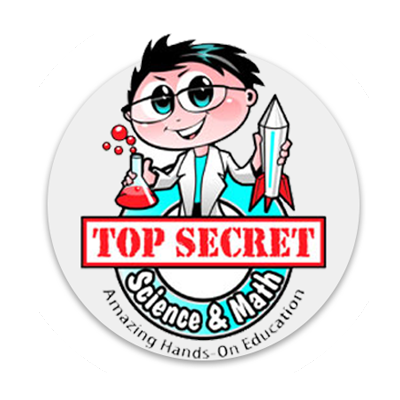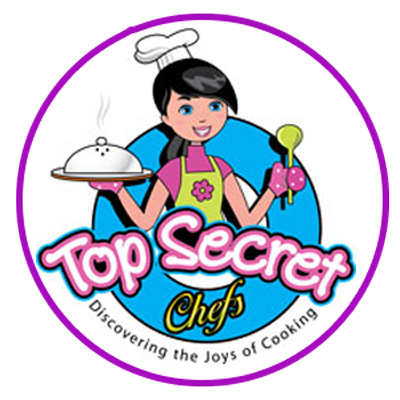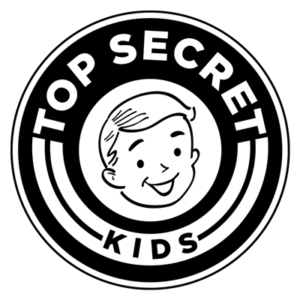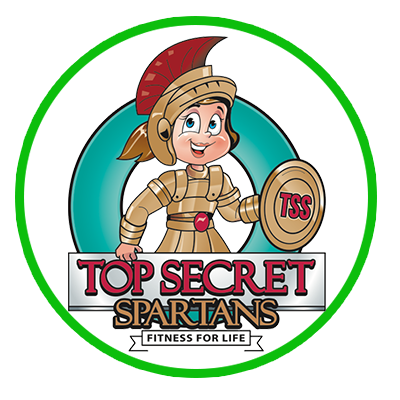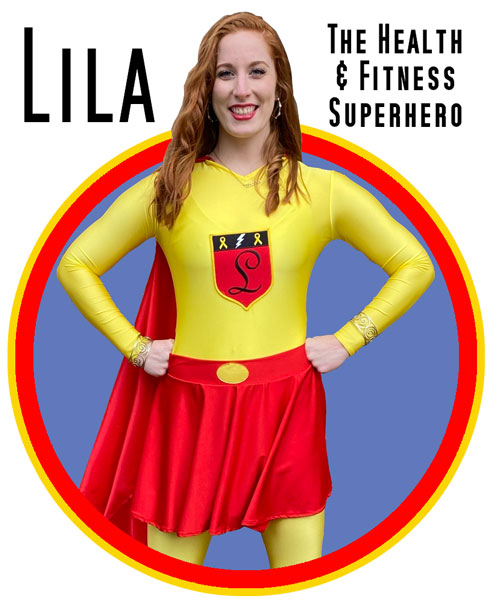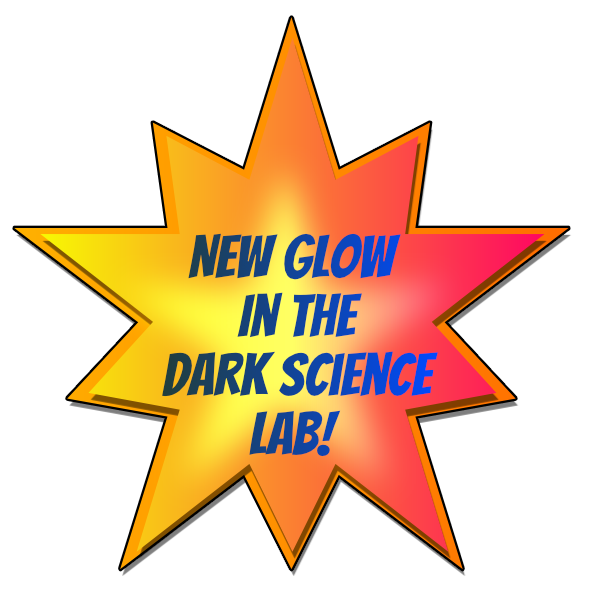Welcome to Top Secret Science!
Thank you for purchasing the 2015 first edition of the Scientist Trading Cards. Are these the most famous or best scientists? Are these the most acclaimed in their respective fields? The answer to both is probably no. But, our goal is to show children that there are millions of great people accomplishing and discovering great things. We believe you have made a wise and fun investment for your present and future.
We believe that science is a fascinating adventure of fantastic discoveries and imaginative investigation that affects us every day. Unfortunately, science is not viewed as a priority at a young age which means that a child’s natural curiosity can diminish, and over time they can lose interest. But, science is essential to understanding the complexities and opportunities of everyday life.
Our vision is to instill a very high level of enthusiasm and inquisitiveness about science and high technology. This will excite children to learn at any early age by opening their minds and increasing their interest to further learning in the future. This learning will only enhance and broaden each of their lives. Every day we try to offer a wonderful environment where children can build a science foundation that will open the doors to a lifetime of learning.
We are organized as a charitable non-profit and our mission is:
1. To increase the scientific and technological literacy of Pre-K – 12th grade students
2. To create an educational science center used by the general public and for the benefit of the public interest where the understanding of the value of science and the appreciation of the importance and promise of the methods of science in human progress can be taught
3. To improve and develop the science capabilities of children which will be beneficial to the entire community
4. To work closely with schools and other organizations in furthering the work of scientific applications and processes and to develop new goals with the evolving skill and knowledge requirements of the industry
5. To foster scientific freedom, exploration and responsibility
6. and, To provide services and programs for economically disadvantaged children so that they may also experience the same opportunities and offerings of the science center
This mission is our quest and after 18 years we have created a system that is working all over the world. We understand local curriculums very well and use the National and State Science Standards to effectively teach the material. We present everything in a very fun, humorous way so kids really enjoy what is being taught. We have now become the leaders in teaching hands-on science in the country.
What Is Science?
We typically don’t spend much time thinking about the world around us. We assume that we just know why things work or don’t work. We think we know why the sky is blue, or why magnets really work, or what creates global warming, or what the effects of human population are, or what the big bang theory is all about. But, in reality we are just too caught up in everyday life to take the time to keep learning about the world around us.
If we become parents we are lucky enough to have kids that are probably going to be curious about the world around them. They make up for our lack of curiosity. Science is about being curious and we accomplish this with questions and details. If you want to build something, if you want to solve a problem, if you want to find the best way to do something, ask detailed questions and your science training will help you with solutions.
Science is not about the finite or about absolute truths. This is where science gets misunderstood in its complexity and why most teachers feel uncomfortable with the subject. Most elementary school teachers think science is some forbidden world that is too unreachable or too unattainable. It’s not at all. We will never know more than one one-thousandth of what science is all about. We don’t have to have all the answers. Part of the exploration is the discovery for some of those answers. And, new discoveries can completely change our perception of the original answer. Scientists told us long ago that the earth was flat and that there were 9 planets. But, after continued research we found different results. Science is ever changing.
Science is more about possibilities and as current thought is involved, the probability. That’s really all it is. For example, we believe that life here on earth will continue for probably thousands if not millions of years. But, if new research indicates that an asteroid will hit earth next week, then our original answer would change.
Even though we work with over 1,000 children every week, we are still amazed at how little teachers prepare their students with science for the world around them. Science is very important. It helps us with processing information logically and helps us solve everyday problems. Does any other subject offer that to us? Of course science is big, bigger than any other topic by far, but the basics are not even being covered. And, why is it that kids get easy A’s in science when they can’t even answer the basic fundamentals of science. This is the only subject that you can get away with that.
We ask every group of students from kindergarten to grade 3 what they think the meaning of science is. We would love to tell you that we get hundreds of different responses but the reality is that we get only a few basic ones which include “learning stuff,” “blowing up stuff,” or “mixing potions.” We then explain that they are involved with science all day long but probably don’t realize it because science is learning about everything. Science is knowledge. It’s having fun, discovering, inventing, making mistakes, building, creating, exploring, living, traveling, communicating with people, trying to figure things out, and trying to solve problems. But, very few think of themselves as real scientists. The majority of children feel that it would be easier to be a professional singer or athlete than a scientist.
We also ask them to name different types of scientists. If you asked children whether a carpenter, rancher or fisherman were scientists most would say no. They never think outside the lab coat box – never. They think of Einstein, and Bill Nye in funny glasses and lab coats and think that they will never be as smart as them. We try to show them the enormous amount of science happening all around us and that millions of people are involved in wonderful careers. They are amazed at the wide variety of opportunities. There is a huge spectrum of careers that are fun and exciting. And, what other fields can you actually inspire so many others for the good of all mankind? Science careers can.
Learning the process of science exploration allows a person a unique set of skills that can’t be found with other courses. Think of the skills that you attain from history, geography, English or a foreign language and then compare them to the science skills. You’ll see that there are more useful skills in learning science than in all the other topics combined. These skills can be divided into three major areas: Science Process, Critical Thinking and Scientific Reasoning. Here is a closer look at just some of the skills that children can achieve during the scientific process:
Science Process Skills
| Skills | Description |
|---|---|
| Observing | Determining the properties of an object or event by using the senses |
| Classifying | Grouping objects or events according to their properties |
| Measuring/Using Numbers | Estimating, describing quantitatively using appropriate units of measurement, recording quantitative data, space or time relationships |
| Communicating | Using written and spoken words, graphs, tables, diagrams, and other information Presentations, including those that are technology based |
| Inferring | Drawing a conclusion about a specific even based on observations and data: may include cause and effect relationships |
| Predicting | Anticipating consequences of a new or changed situation using past experiences and observation |
| Collecting, Recording And Interpreting Data | Manipulating data, either collected by self or by others, in order to make meaningful information and then finding patterns in that information that lead to making inferences, predictions and hypotheses |
| Identifying and Controlling Variables | Identifying the variable in a situation: selecting variables to be manipulated and held constant |
| Defining Operationally | Defining terms within the context of one’s own experiences; stating a definition in terms of “what you do” and “what you observe” |
| Making Hypotheses | Proposing an explanation based on observations |
| Experimenting | Investigating, manipulating materials, and testing hypotheses to determine a result |
| Making and Using Models | Representing the “real world” using a physical or mental model in order to understand the larger process or phenomenon |
Critical Thinking Skills
| Skills | Description |
|---|---|
| Analyzing | Studying something to identify constituent elements or relationships among elements |
| Synthesizing | Used deductive reasoning to pull together key elements |
| Evaluating | Reviewing and responding critically to materials, procedures, or ideas, and judging them by purposes, standards, or other criteria |
| Applying | Using ideas, process, or skills in new situations |
| Generating Ideas | Expressing thoughts that reveal originality, speculation, imagination, a personal perspective, flexibility in thinking, invention or creativity |
| Expressing Ideas | Presenting ideas clearly and in logical order while using language that is appropriate for the audience and occasion |
Using critical thinking skills to find solutions
Scientific Reasoning Skills
| Skills | Descriptions |
|---|---|
| Longing to Know And Understand | Determining the properties of an object or event by using the senses |
| Questioning of Scientific Assumptions | The tendency to hold open ideas, encounters and assumptions for further verification |
| Search for Data and Its Meaning | The propensity to collect information and to analyze it in context |
| Demand for Verification | The inclination to repeat and replicate findings and studies |
| Respect For Logic | The inclination to move from assumption to testing and data collection to collections |
| Consideration of The Premises | Tendency to put into context the reason for a particular point of view |
| Consideration of Consequences | The tendency to put into perspective the results of a particular point of view |
| Respect for Historical Contributions | The inclination to understand and learn from earlier ideas, studies and events |
What is a Scientist?
OK kids, besides Einstein, name three other great scientists and what their accomplishments were? Then, after that can you tell us what Einstein discovered or invented?
Why is it that we can remember insignificant moments in our lives from years ago and we can’t name people who made major differences in our lives? Think of all the important things that are a huge part of our lives every day like plastic, rubber, aspirin, soft drinks, television, radios, cars, and a million other things. About 50 years ago the disposable baby diaper was invented. Why do we know the everyday lives of 21 year old so called movie stars and not the name of the woman inventor who has helped over 1 billion parents?
The definition of a scientist is varied. It can be a person who has studied science in school and is now active in a particular field of study, or, a person who uses the scientific method in their job, or it might be someone who is an expert in one field of study. But, overall, isn’t this limiting?
Scientists just have advanced knowledge about a topic. We don’t believe a scientist just wears a white lab coat, or just publishes research papers on one field of study, or who only receives grants for scientific work, or even has a PhD. after their name. When we think of science in this narrow way children only associate science with lab related work. Children should be taught that not only is science all around us but in many ways we all do science work and are in fact little scientists.
Scientists do follow a series of steps or methods in their experiments. Even as kids we pretty much follow the steps without realizing what they are or mean. As we get older we probably don’t remember what the names are but they are important in finding the solutions.
The scientific method is a group of techniques for exploring the world around us and learning new information as well as changing or correcting old information. It requires desire, passion, creativity and patience because information gathering and research can take time. There have been many books written in vivid detail about the scientific method. Children can find numerous websites that will help them understand the process better. Teachers and parents alike should take the time to become knowledgeable about the process because it can only help them in many facets of life.
The scientific method includes these steps:
1. Observe and ask questions
2. Research
3. Develop a hypothesis (an educated guess at what might happen)
4. Do the experiment and test your hypothesis
5. Analyze data and make a conclusion
6. Record your results
Of course there is a lot of detailed information regarding each step but it can be as simple as this overview too. Overall it is about doing things hands-on, solving problems and coming up with new recommendations.
What is a Scientist?
So, you understand problem solving and the scientific method. You love figuring things out or building things. Or, you can see yourself making a difference in the lives of others. If you do, then you are ready for a science career. Here is a list of some of the more popular careers. But rather than spend hundreds of pages on what each job entails, we suggest that you visit the multitude of websites devoted to providing this information in great detail. Of course as you look at this list you’ll realize that most of these jobs require advanced training or a college degree but not all of them do. To become a scientist in many areas (or an expert) just requires a passion for that area along with a certain amount of time.
| Aerospace Engineer | Agricultural Engineer |
| Agricultural Scientist | Aircraft Pilot |
| Air Traffic Controller | Anesthesiologist |
| Anesthesiologist Assistant | Anthropologist |
| Archaeologist | Architect |
| Art Therapist | Astronomer |
| Athletic Trainer | Atmospheric Scientist |
| Audiologist | |
| Bacteriologist | Biochemist |
| Biological Scientist | Biological Technician |
| Biologist | Biology Teacher |
| Biomedical Engineer | Biophysicist |
| Biostatistician | Botanist |
| Cardiologist | Cardiovasular Technician |
| Carpenter | Carpologist |
| Chef | Chemical Technician |
| Chemist | Chiropractor |
| Civil Engineer | Climatolgist |
| Clinical Lab Technologist | Clinical Pathologist |
| Clinical Psychologist | Computer Hardware Engineer |
| Computer Scientist | Computer Software Engineer |
| Construction Manager | Coroner and Medical Examiner |
| Counseling Psychologist | Counselor Rehabilitation |
| Counselor,Substance Abuse | Cytotechnologist |
| Dendroologist | Dental Assistant |
| Dental Hygienist | Dental Laboratory Technician |
| Dentist | Dermatologist |
| Diagnostic Medical Sonographer | Dietetic Technician |
| Dietitian and Nutritionist | |
| Ecologist | Electricians |
| Electroneurodiagnostic Technologist | Embalmer |
| Emergnecy Medical Technician | Endocrinologist |
| Engineer | Entomologist |
| Envirornmental Engineer | Environmental Health Scientist |
| Environmental Science Technician | Epidemiologist |
| Family and General Physician | Farmer |
| Fisherman | Fitness Trainer and Aerobics Instruct |
| Flight Engineer | Food Scientist |
| Forensic Science Technician | Forestry Worker |
| Funeral Director | |
| Genetic Couselor | Geological Engineer |
| Geoscientists | Government Service Executive |
| Hazardous Material Remover Worker | Health & Medical Museum Curator |
| Health Educator | Health and Safety Engineer |
| Health Service Manager | Health Spec Teacher |
| Hermatologist | Histotechnician-Technologist |
| Home Health Aide | Horticulturist |
| Immunologist | Industrial Engineer |
| Industrial Production Manager | Internist |
| Kinesiotherapist | |
| Landscape Architect | Language Pathologist |
| Logging Worker | |
| Marine Biologist | Materials Scientist |
| Mathematician | Mechanical Engineer |
| Medical and Clinical Lab Technician | Medical and Clinical Lab Technologist |
| Medical and Health Service Manager | Medical Appliance Technician |
| Medical Assistant | Medical Database Administrator |
| Medical Equipment Preparer | Medical Equipment Repairer |
| Medical Illustrator | Medical Librarian |
| Medical Librabry Technician | Medical Records and Health Info Tech |
| Medical Sales Representative | Medical Scientist |
| Medical Secretary | Medical Transcriptionist |
| Metal Health Worker | Meteorologist |
| Microbiologist | Midwife |
| Mining Engineer | Mining Safety Engineer |
| Mortician | |
| Neurologist | Nuclear Medicine Technologist |
| Nurse Licensed Prac & Vocational | Nurse,Registered |
| Nursing Aide, Orderly & Attendant Nursing Instructor | |
| Obstetrician and Gynecologist | Oceanologist |
| Occupational Health and Safety Spec | Occupational Therapist |
| Occupational Therapist Aide | Occupational Therapist Assistant |
| Oncologist | Ophthalmic Laboratory Technician |
| Optician | Optometrist |
| Oral and Maxillofacial Surgeon | Orninthologist |
| Orthodonstist | Orthotist and Prosthetist |
| Osteologist | |
| Paleoanthropologist | Paleobiologist |
| Paleontologist | Paramedic |
| Patent Lawyer | Pathologist |
| Pathologist Assistant | Pediatrician |
| Personal and Home-Care Aide | Petroleum Engineer |
| Petrologist | Pharmacist |
| Pharmacy Aide | Pharmacy Techinician |
| Pharmacologist | Physical Therapist |
| Physical Therapist Aide | Physical Therpaist Assistant |
| Physician | Physician Assistant |
| Physicist | Physiologist |
| Plumber | Podiatrist |
| Prosthodontist | Psychiatric Aide |
| Psychiatric Technician | Psychiatrist |
| Psychologist | Public Relations Specialist |
| Radiation Therapist | Radiologic Techinician |
| Radiologic Technologist | Radiologist |
| Rancher | Recreation & Fitness Studies Teacher |
| Recreational Therapist | Respiratory Therapist |
| Respratory Therapy Techinician | |
| Science Technician | Science Writer |
| Seismologist | Social Worker Child Family & School |
| Social Worker, Medical | Social Worker, Mental Health & Sub |
| Sound Engineer Techinician | Speech-Language Pathologist |
| Stone Mason | Surgeon |
| Surgical Technologist | Surveyor |
| Systems Analysts | Systems Developer |
| Toxicologists | |
| Urban & Regional Planners | |
| Veterinarian | Veterinary Assistant |
| Veterinary Technologist & Technician | Virologist |
| Zoologist | |
How did we create this first list of 250 scientists? Over a ten year period we asked well over 100,000 children and adults about what type of people made a difference in their lives. They had an interest in learning about people that discovered scientific principles, built buildings, invented toys and everyday products, had an expertise in different subjects, and who just made the world a better place. We will use these same ideas as we develop our second set of Scientist Trading Cards for 2016.
How did we determine the year on the front of each card? After careful consideration we decided that this was the year that the scientist first started work on the discovery, idea or invention or when a significant part of the discovery, idea or invention was conceived.
We bring you this overview to awaken the scientist in all of us. The Scientist Trading Cards are written for children of all ages along with their parents and teachers. Together we can challenge and grow America with a renewed science spirit that will benefit all of mankind. Don’t think of these cards as a destination, think of them as part of the journey. Enjoy!!
If you have an amazing scientist for our next edition we would love to hear about them. Please email us at Scientist@TopSecretScience.com. Or send us a letter at Top Secret Science, 400 West Cummings Park, Suite 1725-128, Woburn, MA 01801. Thanks again!!
